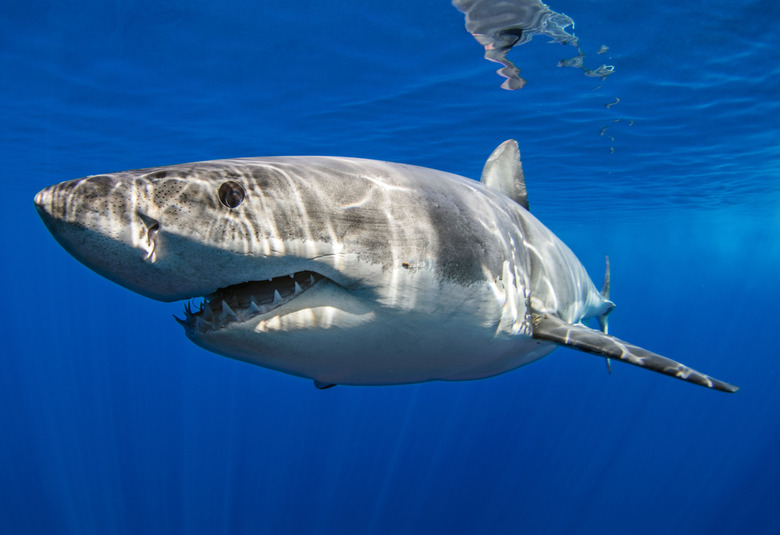Can Sharks Teach Us How To Cure Cancer? Scientists Think So
We humans like to flatter ourselves and imagine that we have what it takes to survive here on planet Earth, but our reign pales in comparison to that of sharks. Sharks like the great white have been dominating the seas for millions of years, and they didn't reach the pinnacle by chance.
Sharks have incredible biological abilities that give them an edge over many other species, including humans. Now, new research into shark DNA could potentially hold the key to cures for human diseases like cancer, but first scientists have to understand exactly what is going on in the animals' genes.
In a new study conducted by researchers from a number of different institutions, the genome of the great white shark was pieced together and then compared against that of other species including humans. What the team found was the shark's genome is about 50% larger than our own, and has built-in defenses that dramatically boost the survivability of the animal itself.
One of the more incredible features of the great white's DNA is that it is more resistant to damage than our own. DNA damage has been linked to cancer as well as other diseases and conditions in humans, but sharks have a built-in resistance that protects them. On top of that, shark DNA can actually repair itself, which human DNA simply isn't capable of.
It's this increased genetic stability that makes sharks so hearty, and has helped the species thrive for millions of years.
"Not only were there a surprisingly high number of genome stability genes that contained these adaptive changes, but there was also an enrichment of several of these genes, highlighting the importance of this genetic fine-tuning in the white shark," co-author Mahmood Shivji, Ph.D., said in a statement.
By studying the mechanisms by which the great white shark's genes defend themselves against damage and repair existing damage, the researchers hope to come up with new strategies for combating cancer risk and other age-related ailments.
